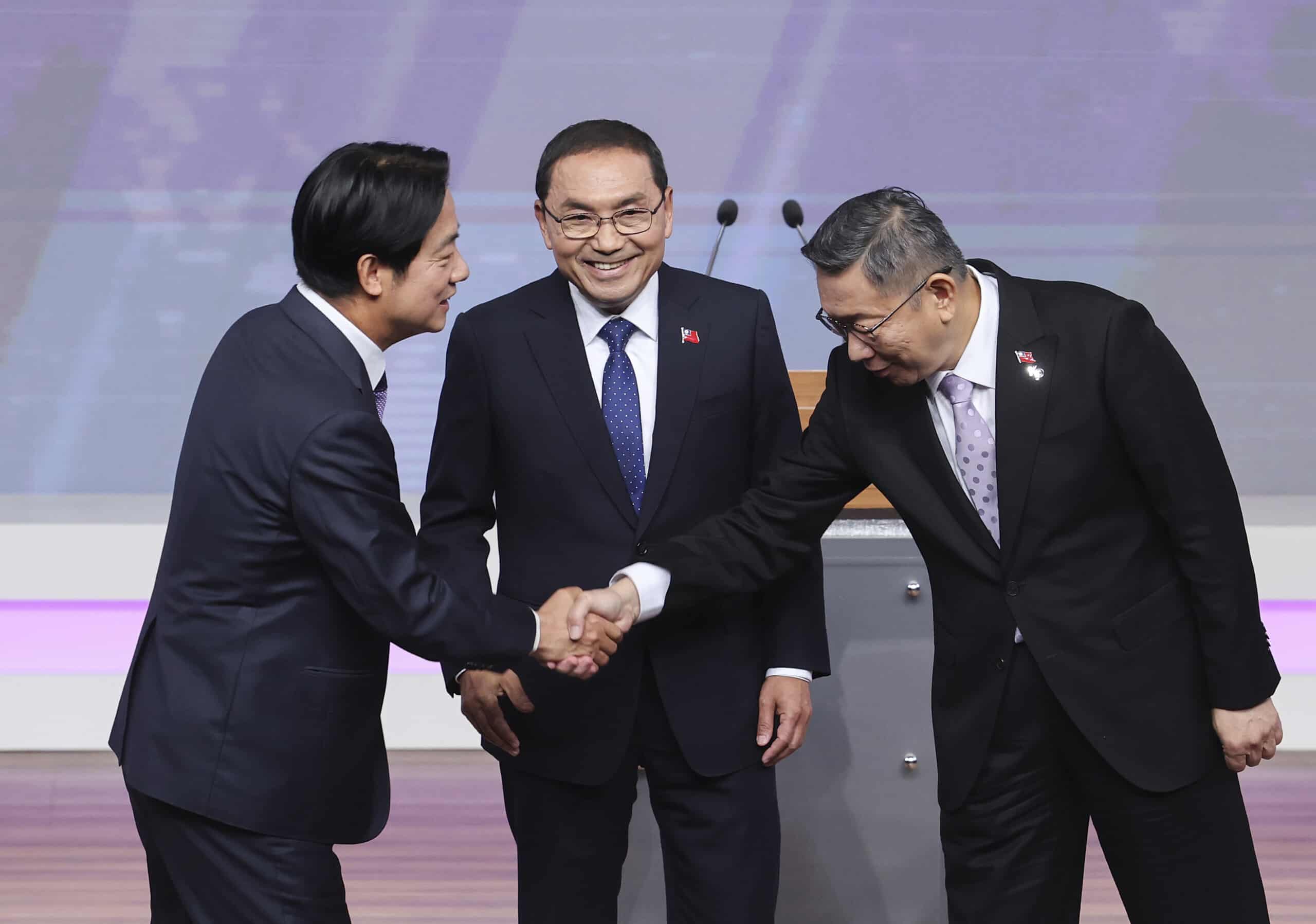
On Taiwan’s campaign trail, presidential candidates are sticking to a familiar message: the decision voters make in the January 13 election will make the difference between peace and war with neighboring China. That big issue is competing for attention along with a myriad of domestic social and economic concerns affecting Taiwanese voters which, for some, loom larger in their daily lives.
This week, The Wire offers a guide to Taiwan’s presidential and legislative elections which will shape how it is governed for the next four years.
CLOSER TO HOME
Since 2008, either one of Taiwan’s two main parties has controlled both Taiwan’s presidency and its legislature, the Legislative Yuan. This has given both the Kuomintang (KMT) and the Democratic Progressive Party (DPP) strong mandates during their respective periods in government.

Polling continues to show that the majority of young voters consider themselves Taiwanese, ordinarily a positive sign for DPP strategists: the party tends to be more associated with Taiwanese nationalism, although it does not support an immediate declaration of independence.
But voters’ sense of identity may not be the decisive factor in the elections this time. More than 25 percent of respondents to a recent poll of almost 15,000 people conducted by Commonwealth magazine chose economic development as their highest-priority issue for Taiwan’s leadership, with national security and relations with mainland China the second and third-most popular choices.
Click here to read a piece from The Wire China archives on ‘The Plan to Destroy Taiwan’.
“The future of Taiwan depends more on the relative competition between China and the United States, which is beyond the control of Taiwan on its own,” says Austin Wang, assistant professor of political science at the University of Nevada, Las Vegas. “In the eyes of many Taiwanese people, especially for the younger generation, they are starting to think: ‘maybe we should pay more attention to what is happening around us, like high housing prices, or road safety, or other domestic issues.’”

Fatigue with the two main parties is triggering a modest rise in support for former Taipei mayor Ko Wen-je, who leads the upstart Taiwan People’s Party (TPP). More than 12 percent of voters identified as TPP supporters in the latest poll conducted by the Taiwan’s Election and Democratization Study (TEDS) at NCCU.
“Much of the youth support for Ko Wen-je is not necessarily driven for admiration for Ko Wen-je or because they like him, for many it’s really just a matter of pure dissatisfaction with the DPP and the KMT,” says Lev Nachman, assistant professor at National Chengchi University (NCCU) in Taipei.

Taiwan’s last general election took place soon after the protests that erupted in Hong Kong in 2019, a development that helped the DPP secure four more years in power as it brought issues around national security and identity to the fore.
While this election could bring more focus onto domestic economic issues, some analysts caution that this will still require candidates to discuss the extent of Taiwan’s trading relationship with its nearest neighbor.
“You can’t say that it’s only about economics when all economic policy is directly related to what Taiwan is going to do with the PRC,” says Nachman.

More than 70 percent of young people aged 20 to 35 voted in the 2020 presidential election, a significant increase from the 57 percent turnout in 2016. In November 2022, a constitutional referendum on lowering Taiwan’s voting age from 20 to 18 failed to pass, contributing to young people’s disappointment with the two major parties.
“Both KMT and DPP supported the measure and they tried to get their supporters to vote yes, but it eventually failed, so who’s to be blamed?” says Alvin Chang, managing director of the Taiwan Youth Association for Democracy. “The answer is the two main parties. They tried, but not enough.”
However, some are skeptical that the increase in youth participation in the last election is part of a larger trend.
“Like every other democracy in the world, young people in Taiwan vote the least,” says Nachman. “The question of why they are so jaded with the two big parties is a very important question for Taiwan’s future, but they’re not going to decide the next president.”

Although unemployment is below five percent in Taiwan, pessimism over the economy is reflected in workers’ dissatisfaction over low salaries. More than 75 percent of workers received no salary increase in 2023, according to a September 2023 survey conducted by recruitment firm 1111 Job Bank. GDP is expected to grow by 1.4 percent in 2023, the lowest in eight years.
While many observers tentatively predict that the DPP’s Lai Ching-te will be elected president, they expect his party to lose its majority in the Legislative Yuan, setting the stage for fractious governing in Taiwan.
“Based on Lai Ching-te’s own personality and also based on his previous experience as Tainan city mayor, Lai would oppose making compromises with the opposition parties,” says Wang. In 2015, while serving as mayor of the southern city of Tainan, Lai boycotted meetings of the city council for more than 200 days because of disagreements over the handling of a local bribery scandal.

Aaron Mc Nicholas is a staff writer at The Wire based in Washington DC. He was previously based in Hong Kong, where he worked at Bloomberg and at Storyful, a news agency dedicated to verifying newsworthy social media content. He earned a Master of Arts in Asian Studies at Georgetown University and a Bachelor of Arts in Journalism from Dublin City University in Ireland.



